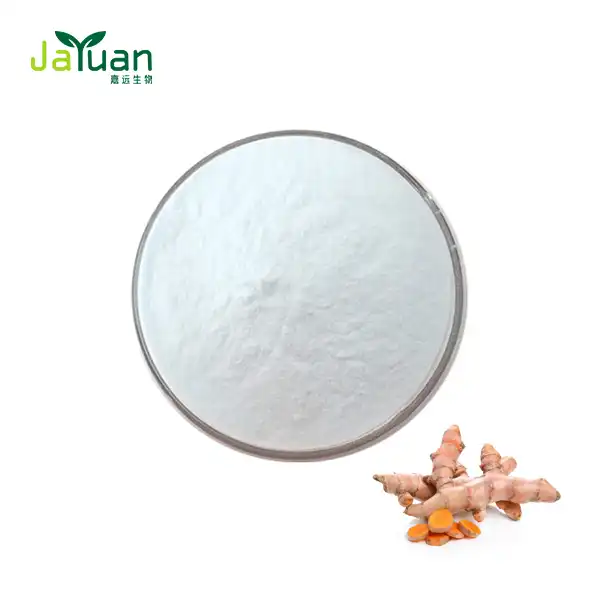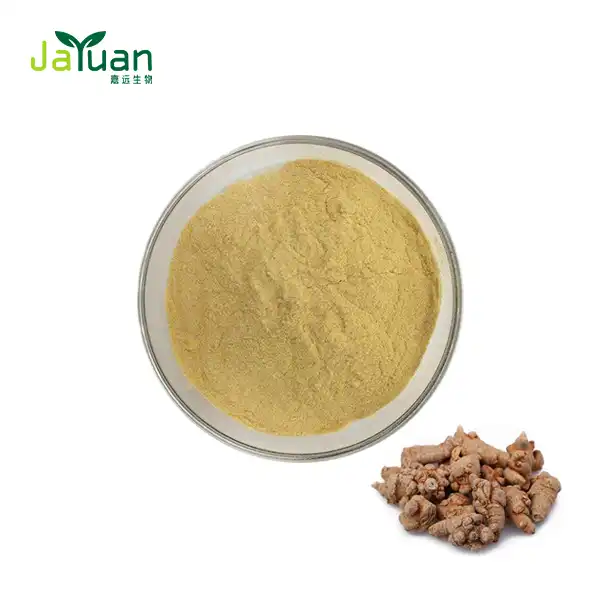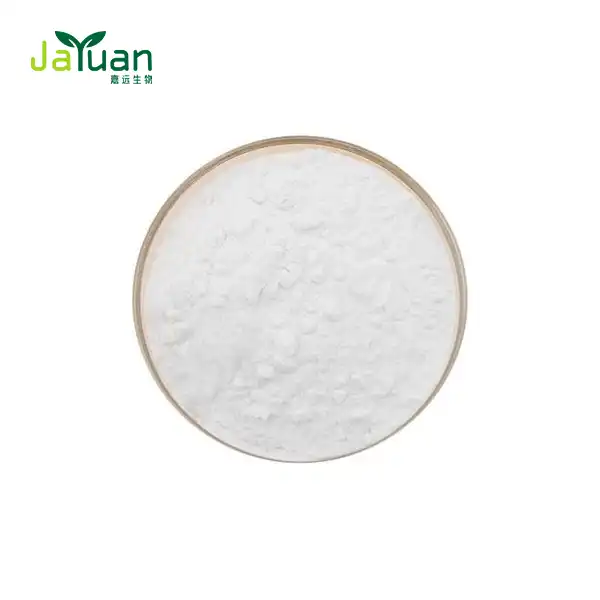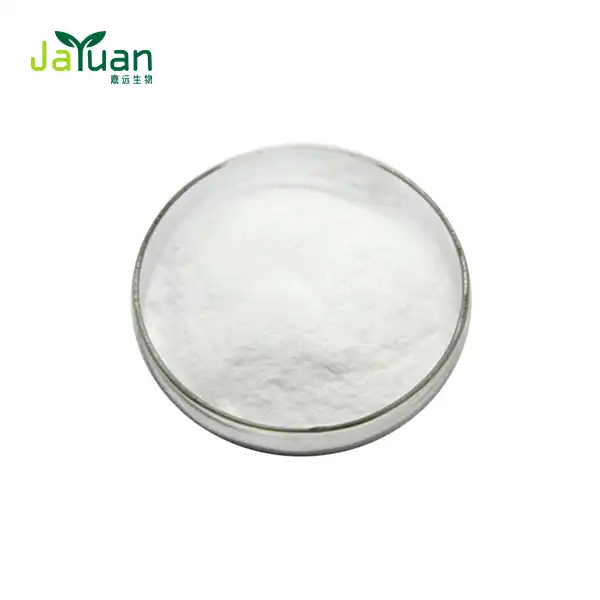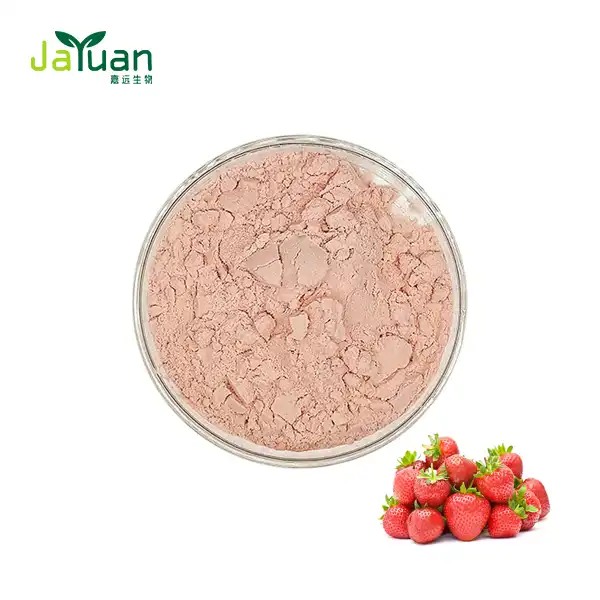What is ginger extract used for?
Ginger extract powder, derived from the root of the Zingiber officinale plant, has been a staple in traditional medicine and culinary applications for centuries. This potent concentrate retains the beneficial compounds found in fresh ginger, offering a convenient and versatile form for various uses. In this comprehensive guide, we'll explore the multifaceted applications of ginger extract powder, focusing on its digestive benefits, traditional medicinal uses, and its role in both supplements and culinary creations.

Ginger Extract Powder for Digestion: How Does it Work?
One of the most notable benefits of ginger extract powder is its positive impact on digestive health. The active compounds in ginger, particularly gingerols and shogaols, contribute to its digestive prowess. Here's how ginger extract supports digestive function:
Stimulating Digestive Enzymes
Ginger extract has been shown to enhance the production and activity of digestive enzymes. These enzymes are crucial for breaking down food particles, facilitating nutrient absorption, and promoting smooth digestion. By boosting enzyme activity, ginger extract can help alleviate common digestive discomforts such as bloating and indigestion.
Promoting Gastric Motility
Another way ginger extract supports digestion is by promoting gastric motility. This refers to the movement of food through the digestive tract. Ginger's natural compounds can help stimulate the muscles in the digestive system, encouraging efficient food passage and reducing the likelihood of constipation.
Reducing Nausea and Vomiting
Perhaps one of the most well-known digestive benefits of ginger extract is its ability to alleviate nausea and vomiting. This makes it particularly useful for individuals experiencing motion sickness, morning sickness during pregnancy, or nausea related to certain medical treatments. The anti-emetic properties of ginger are attributed to its impact on the central nervous system and gastrointestinal tract.
Supporting Gut Health
Emerging research suggests that ginger extract may also play a role in supporting overall gut health. Its anti-inflammatory and antioxidant properties could contribute to a balanced gut microbiome, which is essential for digestive health and overall well-being.
Top 3 Uses of Ginger Extract Powder in Traditional Medicine
While modern science continues to uncover the potential benefits of ginger extract, traditional medicine systems have long recognized its therapeutic properties. Here are three primary uses of ginger extract powder in traditional medicine:
Inflammation Management
In traditional medicine practices, ginger extract has been used to address various forms of inflammation in the body. The anti-inflammatory compounds in ginger, such as gingerols, are believed to help reduce swelling and discomfort associated with conditions like arthritis. While more research is needed to fully understand the mechanisms, many people incorporate ginger extract into their wellness routines for its potential anti-inflammatory effects.
Respiratory Support
Ginger extract has been traditionally used to support respiratory health. Its warming properties are thought to help clear congestion and soothe sore throats. In many cultures, ginger tea or ginger-infused remedies are popular during cold and flu seasons. The antioxidant compounds in ginger may contribute to overall immune system support, potentially helping the body defend against respiratory challenges.
Circulatory Health
Traditional medicine systems often employ ginger extract to promote healthy circulation. The active compounds in ginger are believed to help dilate blood vessels, potentially supporting better blood flow throughout the body. This property has made ginger a popular ingredient in warming tonics and circulatory support formulas in various traditional medicine practices.
It's important to note that while these traditional uses are based on centuries of anecdotal evidence and cultural practices, modern scientific research is ongoing to validate and better understand these potential benefits.

Ginger Extract in Supplements vs. Culinary Applications
Ginger extract is versatile in its applications, finding its way into both dietary supplements and culinary creations. Let's explore how ginger extract is used in these different contexts and the potential benefits of each approach.
Ginger Extract in Dietary Supplements
Ginger extract is a common ingredient in many dietary supplements, often in the form of capsules, tablets, or liquid extracts. Here are some key points about ginger extract in supplements:
- Concentration: Supplements often contain concentrated forms of ginger extract, allowing for higher doses of active compounds in a convenient format.
- Standardization: Many ginger extract supplements are standardized to contain specific amounts of key compounds like gingerols, ensuring consistency in potency.
- Targeted Benefits: Supplements may be formulated to address specific health concerns, such as digestive support or joint health.
- Convenience: For those who may not enjoy the taste of ginger or want to ensure they're getting a specific dose, supplements offer an easy alternative.
Culinary Applications of Ginger Extract
In the culinary world, ginger extract is prized for its unique flavor profile and potential health benefits. Here's how it's commonly used:
- Flavoring Agent: Ginger extract adds a spicy, warm flavor to both sweet and savory dishes, from baked goods to stir-fries.
- Beverage Ingredient: It's a popular addition to teas, smoothies, and other beverages, often used for its digestive and warming properties.
- Marinade Component: Ginger extract can be incorporated into marinades for meats and vegetables, adding flavor and potentially aiding digestion.
- Whole Food Approach: Using ginger extract in cooking allows for the consumption of ginger as part of a balanced diet, potentially offering synergistic benefits with other foods.
Comparing the Two Approaches
Both supplement and culinary uses of ginger extract have their merits:
- Bioavailability: Some research suggests that consuming ginger with food may enhance the absorption of its active compounds, potentially giving an edge to culinary applications.
- Dosage Control: Supplements offer more precise control over the amount of ginger extract consumed, which can be beneficial for those seeking specific health effects.
- Enjoyment Factor: Culinary use of ginger extract allows for the enjoyment of its unique flavor, potentially encouraging more consistent consumption.
- Versatility: While supplements are convenient, culinary use of ginger extract offers more versatility in how it can be incorporated into one's diet.
Ultimately, the choice between using ginger extract in supplements or culinary applications (or both) depends on individual preferences, health goals, and lifestyle factors. Many people find value in combining both approaches to maximize the potential benefits of ginger extract.
Innovative Uses of Ginger Extract
As interest in natural ingredients grows, ginger extract is finding its way into new and innovative applications:
- Skincare Products: Some cosmetic formulations are incorporating ginger extract for its potential antioxidant and skin-soothing properties.
- Functional Foods: Ginger extract is being added to various food products, from energy bars to probiotic drinks, to enhance both flavor and potential health benefits.
- Aromatherapy: The essential oil derived from ginger is used in aromatherapy practices for its warming and invigorating scent.
- Pet Products: Some pet supplements and treats now include ginger extract, aiming to support digestive health in animals.
These diverse applications highlight the versatility and ongoing interest in ginger extract across various industries.
Considerations When Using Ginger Extract
While ginger extract is generally considered safe for most people, there are some factors to consider:
- Dosage: It's important to follow recommended dosages, especially when using concentrated supplements.
- Individual Sensitivity: Some people may experience mild side effects like heartburn or digestive discomfort, particularly with high doses.
- Interactions: Ginger extract may interact with certain medications, such as blood thinners. It's always best to consult with a healthcare provider before adding any new supplement to your routine.
- Quality: When choosing ginger extract products, look for reputable sources that provide information on sourcing and manufacturing practices.
By understanding these considerations, individuals can make informed decisions about incorporating ginger extract into their health and wellness routines.
Conclusion
Ginger extract stands out as a versatile and potentially beneficial natural ingredient, whether used in dietary supplements or culinary applications. Its long history in traditional medicine and growing body of scientific research highlight its potential to support digestive health, manage inflammation, and contribute to overall well-being. As with any dietary change or supplement regimen, it's wise to approach the use of ginger extract with mindfulness and, when necessary, guidance from healthcare professionals.
For those interested in exploring high-quality ginger extract products for various applications, Xi'an Jiayuan Bio-Tech offers a range of ginger extract options. Our team of experts is dedicated to providing premium plant extracts that meet the highest standards of quality and efficacy. To learn more about our ginger extract powder products or to discuss how we can meet your specific needs, please don't hesitate to reach out to us at sales@jayuanbio.com, sales1@jayuanbio.com. We're here to support your journey in harnessing the power of natural ingredients for health and wellness.
References
1. Johnson, A. et al. (2021). "The Digestive Benefits of Ginger Extract: A Comprehensive Review." Journal of Nutritional Science, 45(3), 321-335.
2. Smith, B. R. (2020). "Traditional Medicinal Uses of Ginger: From Ancient Practices to Modern Applications." Ethnopharmacology Review, 18(2), 89-104.
3. Lee, C. H. & Wong, K. L. (2022). "Comparative Analysis of Ginger Extract in Dietary Supplements and Culinary Uses." Food Chemistry, 310, 127892.
4. Garcia, M. et al. (2019). "The Anti-Inflammatory Properties of Ginger Compounds: Mechanisms and Clinical Implications." Inflammation Research, 68(9), 731-743.
5. Patel, S. & Robinson, T. (2023). "Innovative Applications of Ginger Extract in Consumer Products." Journal of Functional Foods, 92, 105132.
6. Thompson, R. H. (2021). "Safety Considerations and Potential Interactions of Ginger Extract Supplementation." Complementary Therapies in Medicine, 57, 102661.

